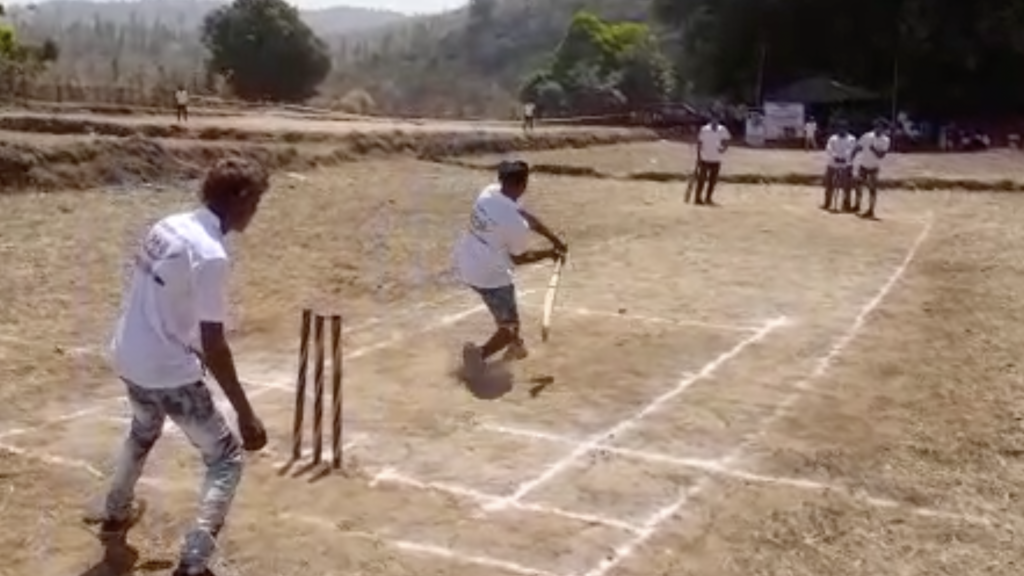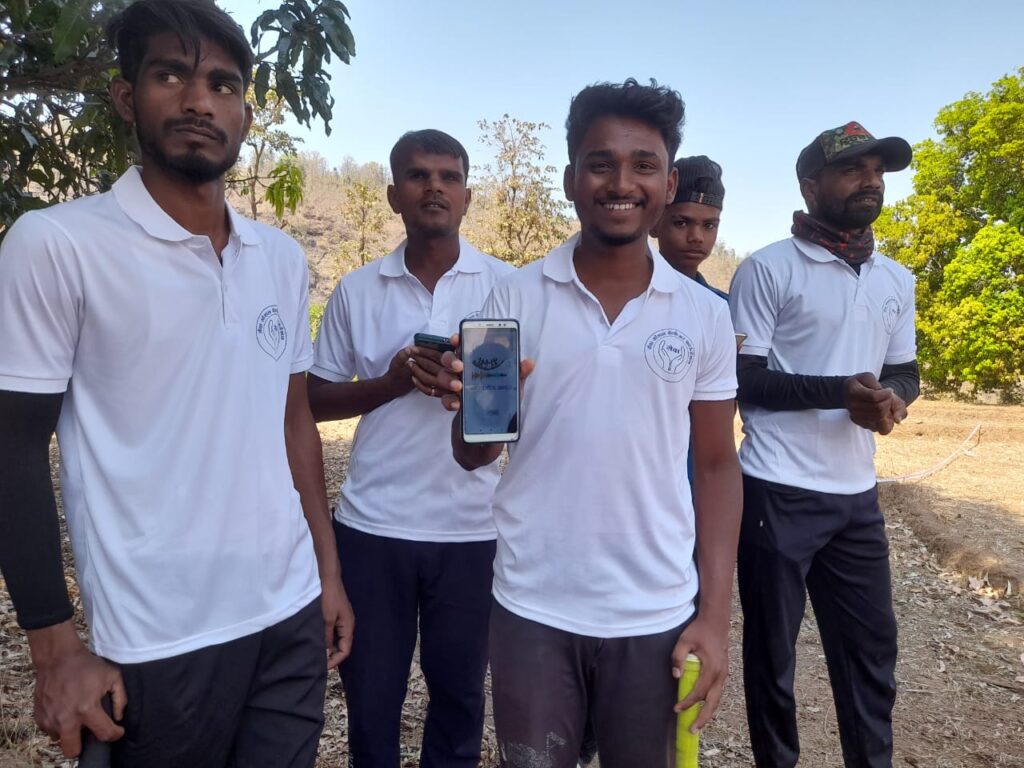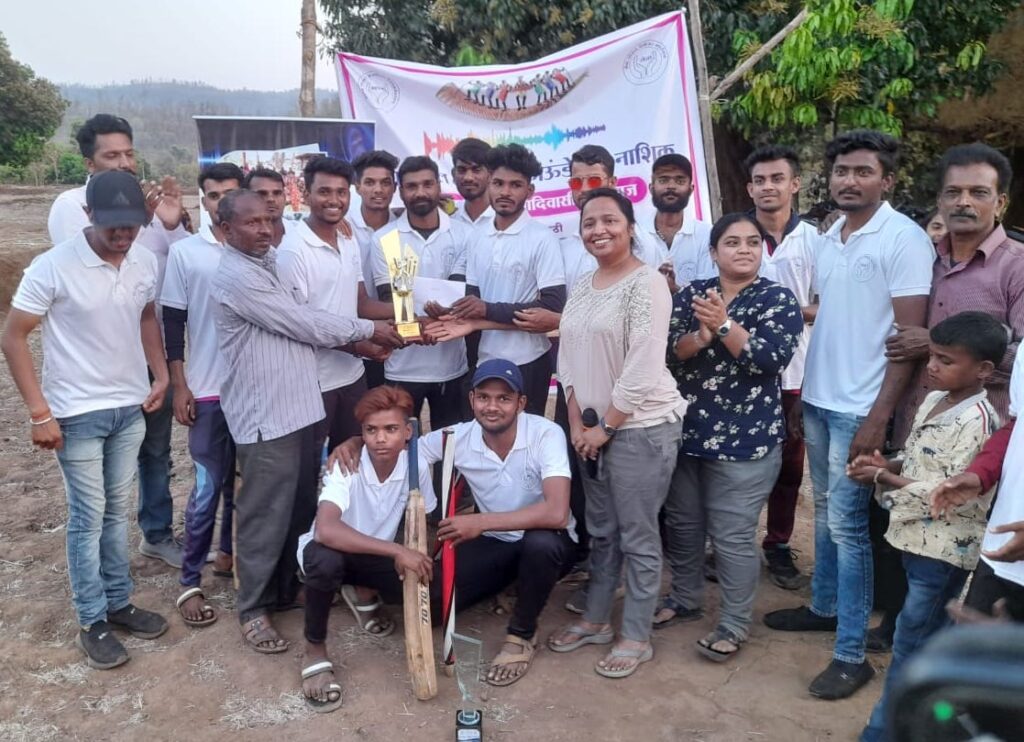
Cricket match brings hope for bonded labourers
It’s not uncommon to see games of cricket on open tracts of land as you travel through villages in India. However on 16thMarch there was a very unusual site in one AdivasiThe Adivasi are the indigenous inhabitants of India village in Maharashtra, where all of the players had one thing in common, they are bonded labourers.
Organised by our partner Seva, 7 remote villages were brought together for a cricket match to launch “Adivasincha Aavaj“, or “Adivasi Voices”, a mobile phone app that will give bonded labourers vital access to information, which could transform their lives. Bonded labour was made illegal in India in 1976, however a 2018 report estimated that around 8 million workers in India were unpaid or held in debt bondage, although campaigners believe the true figure is much higher.

Bonded labourers from an Adivasi community demonstrate a mobile phone app that will transform their lives
Around 200 bonded labourers from the seven communities were able to join the cricketing festivities as they were home for the Hindu festival of Holi that celebrates spring, love, hope and new life. And team leader Shilpa believes that is exactly what the app is all about, bringing hope and new life. “We’re breaking the cycle,” says Shilpa. “These young men did what their parents did and what their parents before them did, but now they will be able to learn about living a life that is free from bondage.”
Although Seva had been addressing the issue of bonded labour and workers rights on the village ‘speakerbox’ programmes for more than a year, our evaluation showed that they were not reaching labourers, because they had already left their villages to work. It was during Covid that the idea of a mobile phone app first occurred to them. “As our team were delivering food to vulnerable communities, we had conversations with many bonded labourers and heard their stories of how they were tied because of debt, unaware that there were ways to break the bondage and earn a living,” said Shilpa.
The mobile phone app, which delivers audio programmes and can facilitate interaction between subscribers, is now available on Android devices, but it will be tested first on this limited audience from a few villages, to learn how it is used and what content they find most valuable. Once the concept has been tested on this small scale, it can be easily scaled up and tailored to reach bonded labourers across the entire sub-continent in multiple languages.

Shilpa and Maneesha from Seva award the Man of the match and cup to the winning team
After the winning team cup and man of the match awards were given, men from the different villages exchanged names and contact numbers and it became apparent that something very special had happened that day. “Not only did several villages come together for the first time ever to share their love of cricket,” said Shilpa, “but new bonds of friendship were made and eyes were opened.” As if a metaphor for life, all the teams were given real cricket balls to take away as they had only had access to plastic cricket balls. “We’re never going back to old cricket,” said Rajesh, one of the players. “Now that we’ve experienced that there is a better way of playing, we want more of it.”
As everyone returned to their respective villages and the men go back to their bonded labour situations, the Seva team is very aware that they could face a backlash from unscrupulous landlords, once they realise that their cheap labour supply could be threatened, as workers become empowered to break free from their bondage. But as Shilpa says, “Somebody had to step in.”
